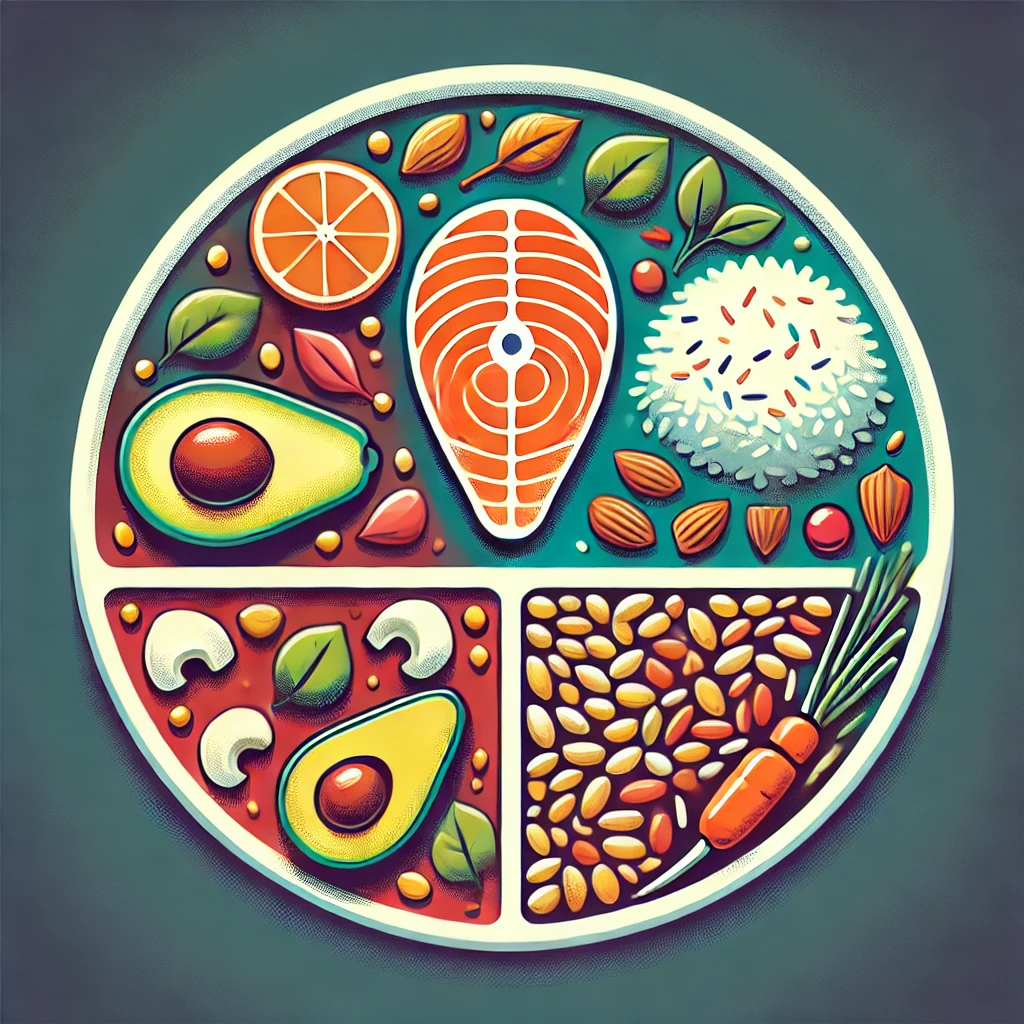Losing belly fat in your 40s can be challenging due to hormonal changes, a slower metabolism, and lifestyle factors. However, with the right strategies, it is possible to shed that stubborn belly fat and achieve a healthier physique.
This article explores effective, scientifically-backed methods to help you lose belly fat in your 40s, covering everything from diet and exercise to lifestyle changes and advanced techniques.
7 Proven Strategies For Lose Belly Fat in Your 40s
1. Understand the Importance of a Balanced Diet

A balanced diet is crucial for losing belly fat, especially as you age. Focus on a diet rich in:
- Lean Proteins: Include foods like turkey, fish, tofu, and eggs. Protein helps build lean muscle and keeps you satiated, reducing the likelihood of overeating.
- Healthy Fats: Incorporate sources of healthy fats like avocados, nuts, and olive oil. These fats help regulate hormones and reduce inflammation.
- Complex Carbohydrates: Choose whole grains, legumes, and vegetables over refined carbs like white bread and sugary snacks. These provide sustained energy and prevent blood sugar spikes.
Tip: Plan your meals ahead of time to avoid unhealthy snacking and make sure your diet is rich in fiber, which aids digestion and promotes satiety.
2. Incorporate Efficient Exercise Routines
Exercise is key to burning belly fat. The most effective routines combine both cardiovascular exercises and strength training:
- Cardiovascular Exercises: Engage in activities like brisk walking, running, cycling, or swimming. Aim for at least 150 minutes of moderate-intensity or 75 minutes of high-intensity cardio each week.
- Strength Training: Build muscle through exercises like squats, lunges, and push-ups. Muscle mass increases your resting metabolic rate, which helps burn more calories even when you’re at rest.
High-Intensity Interval Training (HIIT) is particularly effective for burning fat in shorter periods. Incorporate exercises like sprints or jump rope with brief rest intervals to maximize fat burning.
3. Improve Sleep Quality and Manage Stress

Sleep and stress are often overlooked factors in weight management:
- Sleep: Poor sleep disrupts hunger-regulating hormones, increasing cravings and appetite. Aim for 7-9 hours of quality sleep each night.
- Stress Management: Chronic stress triggers the release of cortisol, a hormone that promotes fat storage, especially around the midsection. Practice stress-reduction techniques like meditation, deep breathing, or yoga to lower cortisol levels and reduce stress-induced eating.
4. Mindfulness and Emotional Eating
Emotional eating, often triggered by stress, boredom, or other emotions, can sabotage your weight loss efforts. Mindfulness practices can help you become more aware of your eating habits and make healthier choices:
- Mindful Eating Practices:
- Eat slowly and savor each bite.
- Pay attention to hunger and fullness cues.
- Avoid distractions like TV or smartphones while eating.
Being mindful of your eating patterns helps you avoid unnecessary snacking and overeating.
5. Utilize Technological Tools
Technology can play a significant role in helping you lose belly fat by tracking your progress and keeping you motivated:
- Fitness Apps and Wearables: Use apps and devices that track your steps, heart rate, and calorie intake. These tools can provide personalized recommendations and help you stay on track.
- Virtual Reality (VR) Workouts: VR workouts offer immersive exercise experiences, making your fitness routine more enjoyable and engaging.
6. Consider Advanced Technologies for Fat Reduction
If you’re looking for additional help, consider non-invasive fat reduction methods like:
- Cryolipolysis (Fat Freezing): This technique targets fat cells in specific areas, including the abdomen.
- Ultrasound and Radiofrequency Treatments: These methods break down fat cells without surgery or downtime.
Always consult a healthcare professional before considering these options to determine if they’re right for you.
7. Lifestyle Modifications
Small lifestyle changes can have a big impact on your journey to lose belly fat:
- Stay Hydrated: Drink plenty of water throughout the day to help control hunger and prevent bloating.
- Limit Alcohol Consumption: Alcohol can add empty calories and increase belly fat.
- Avoid Late-Night Eating: Try to finish eating at least 2-3 hours before bedtime to prevent excess calorie storage.
Sample Diet Plan for Belly Fat Reduction
| Meal | Foods Included | Benefits |
|---|---|---|
| Breakfast | Greek yogurt, berries, and a handful of nuts | High in protein and healthy fats |
| Lunch | Grilled chicken salad with mixed greens and quinoa | Protein-rich with fiber and essential nutrients |
| Snack | Apple slices with almond butter | Satiating and nutrient-dense |
| Dinner | Baked salmon with steamed broccoli and sweet potato | Rich in omega-3s and complex carbs |
| Evening Snack | A small bowl of cottage cheese or a protein shake | Low-calorie, high-protein |
Conclusion
Losing belly fat in your 40s requires a comprehensive approach that includes a balanced diet, regular exercise, adequate sleep, and stress management.
While advanced technologies can provide additional support, the foundation of your weight loss journey should be healthy lifestyle changes. Stay consistent and patient, and you will see results.
FAQs
1. Is it harder to lose belly fat in your 40s?
Yes, due to hormonal changes and a slower metabolism, but with the right strategies, it’s still possible to lose belly fat.
2. How much sleep do I need to lose belly fat?
Aim for 7-9 hours of quality sleep to regulate hunger hormones and reduce cravings.
3. Can I target just belly fat with exercises?
Spot reduction is a myth. Focus on overall fat loss through a combination of diet, cardio, and strength training.
4. Are non-invasive fat reduction techniques safe?
Yes, they are generally safe but consult with a healthcare professional to see if they’re suitable for you.
5. How does stress affect belly fat?
Chronic stress raises cortisol levels, which can lead to increased fat storage around the abdomen.



